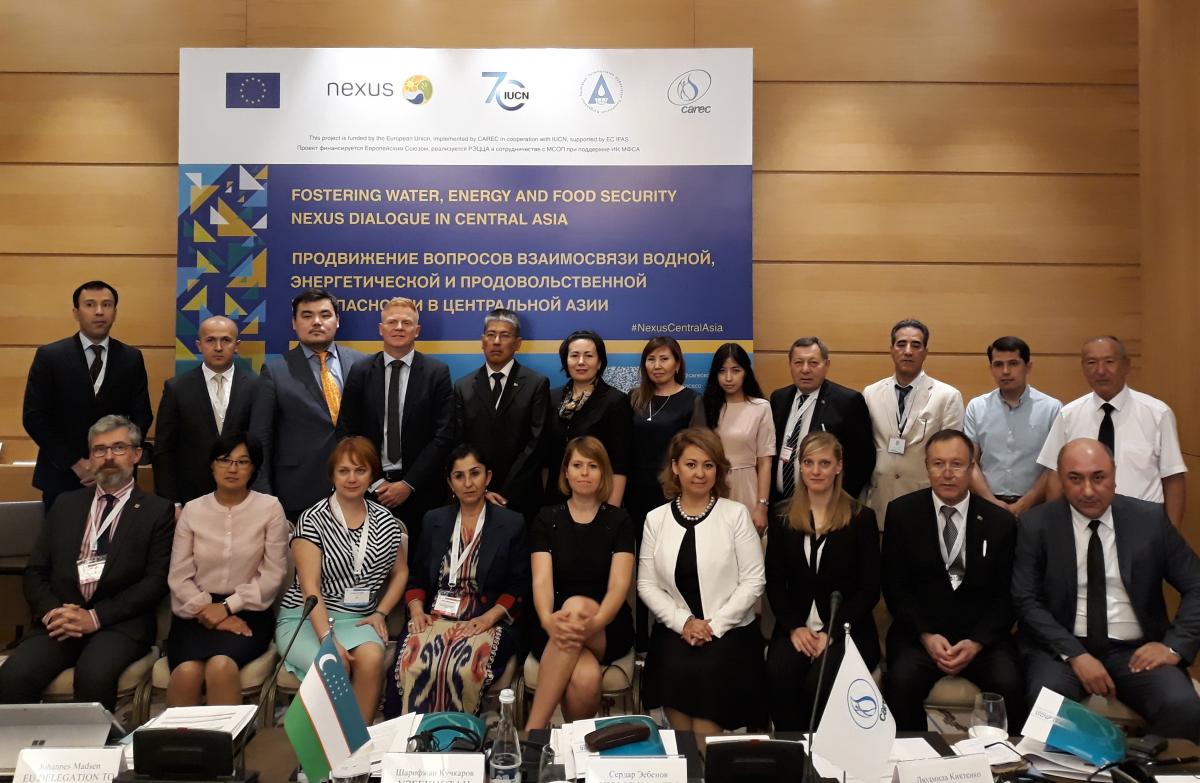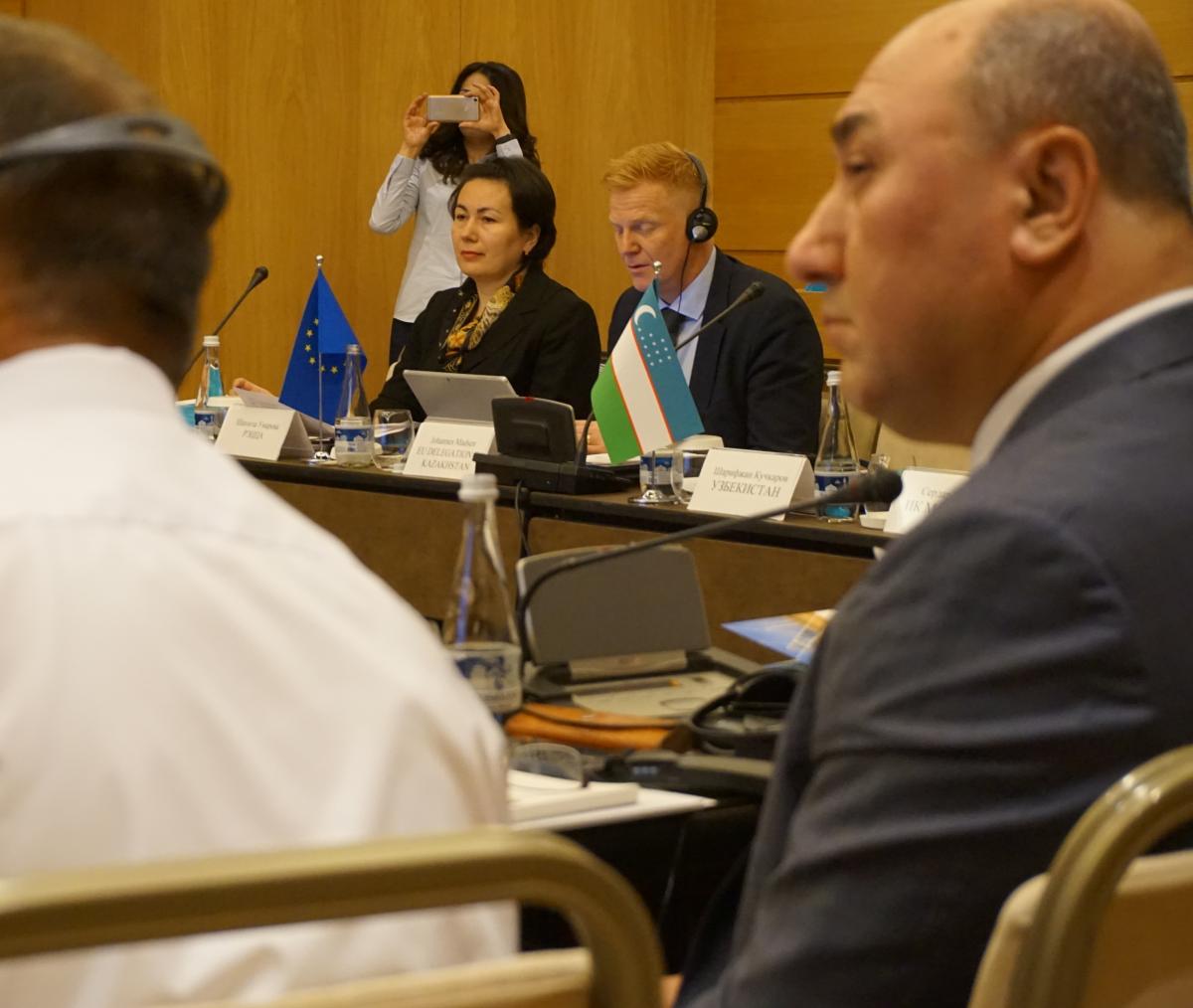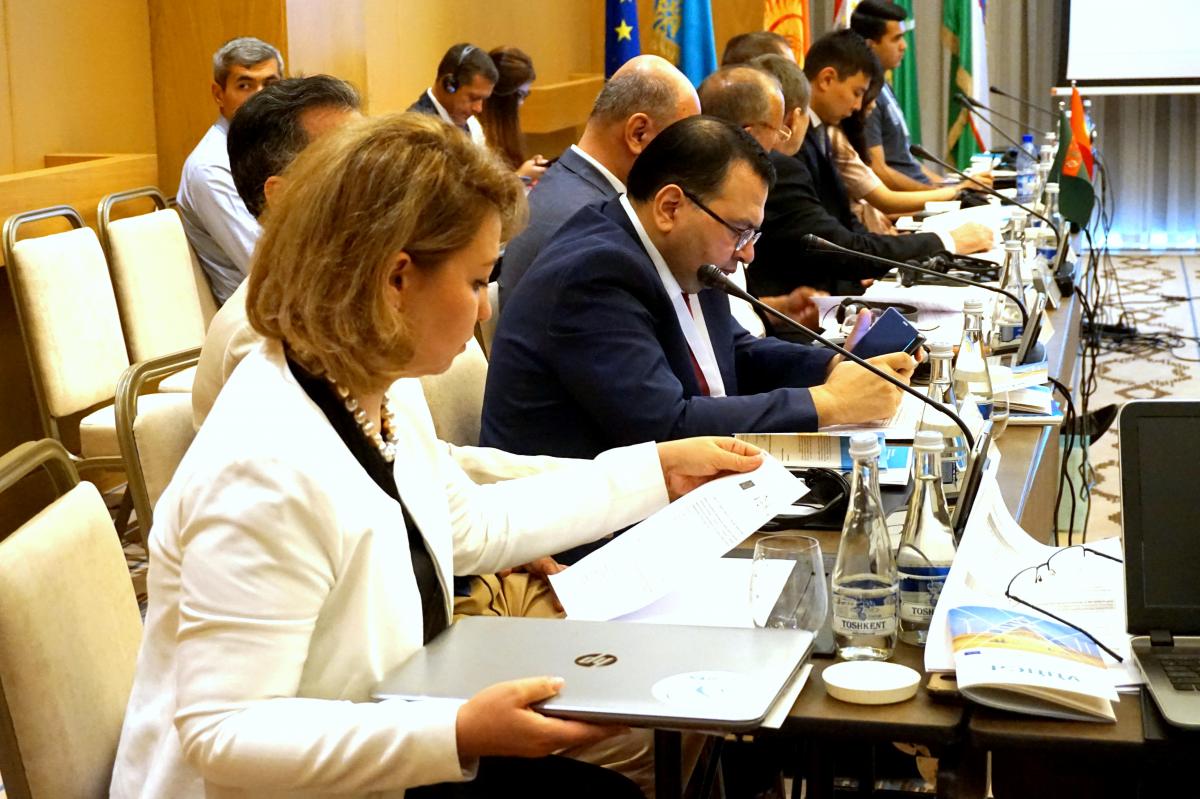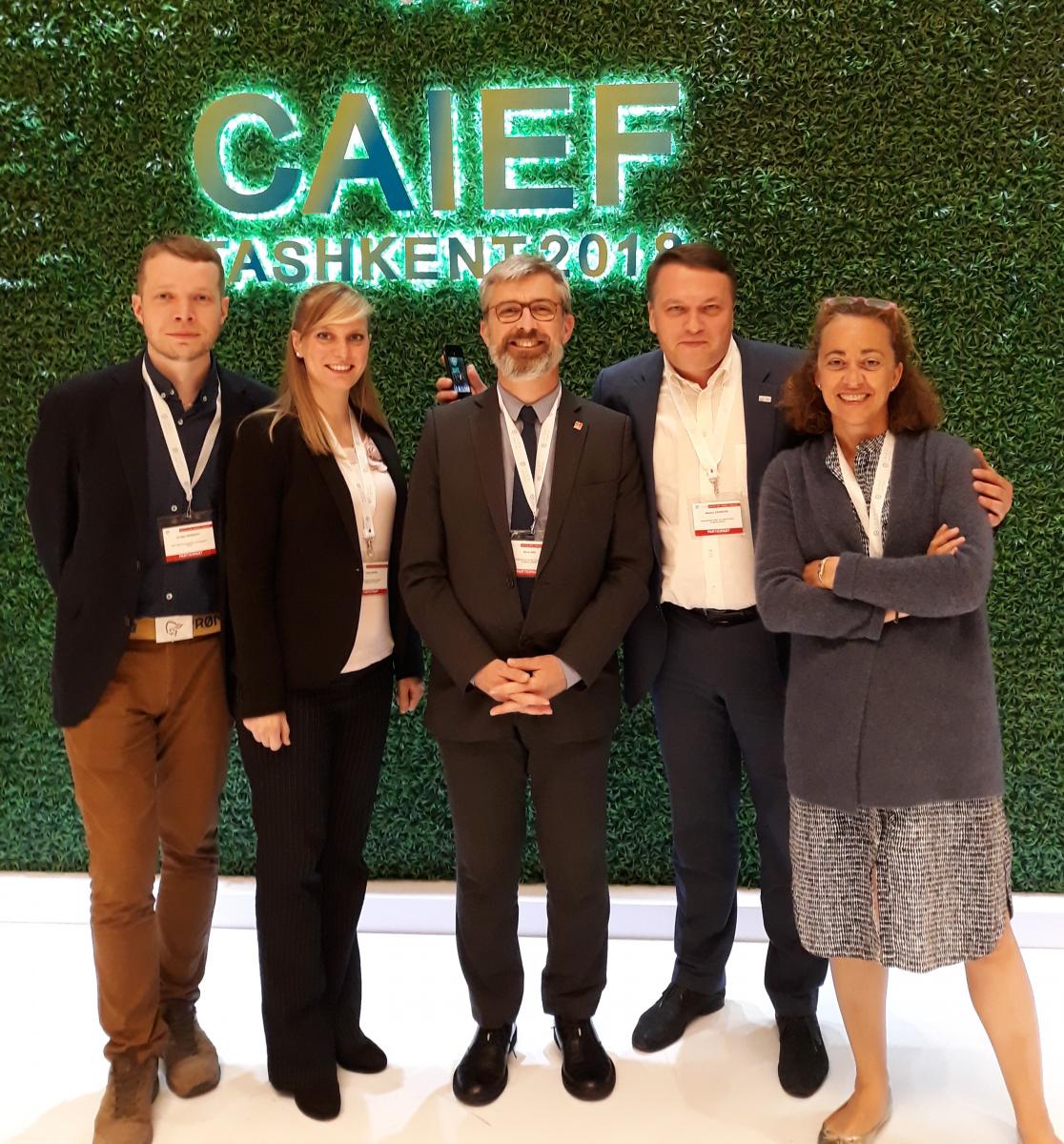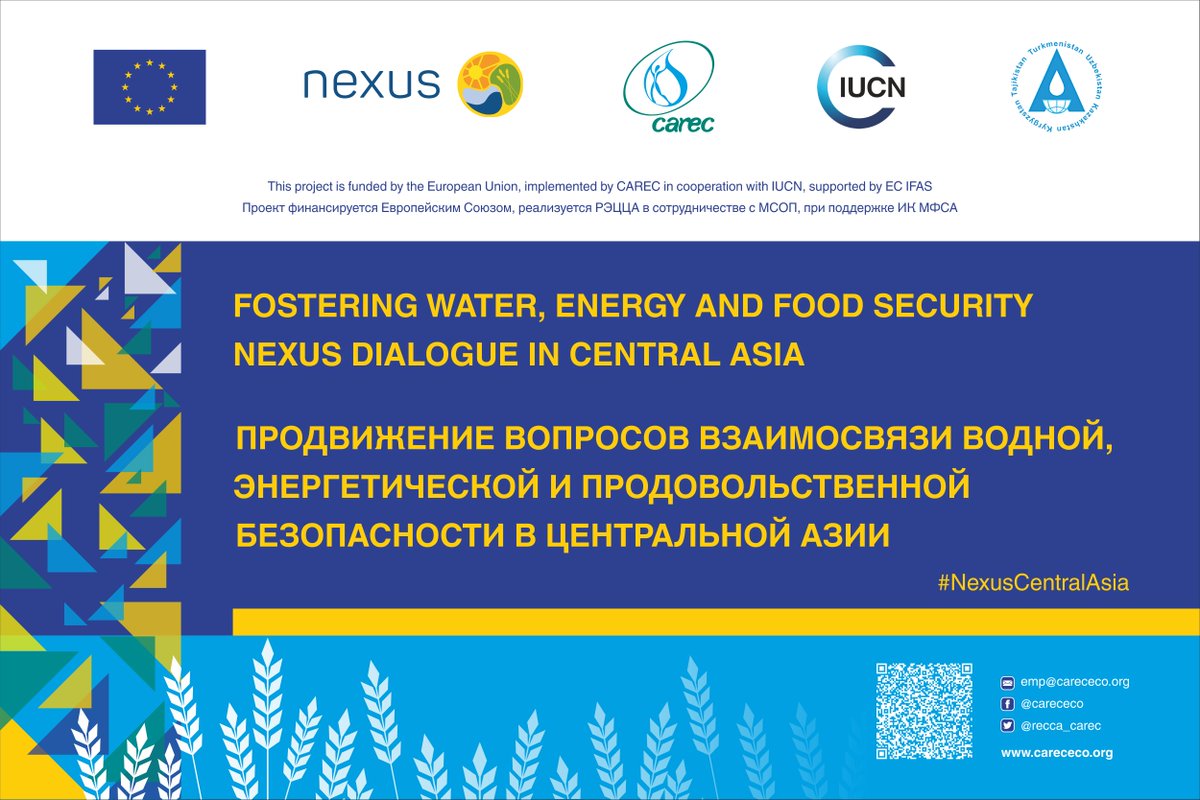Building partnerships for water, energy and food security in Central Asia
At a time when global trends, such as climate change, population growth and changing consumption patterns, contribute to increasing demands for water, energy and food, impact biodiversity and threaten the livelihoods of the local population, it is ever more important to strengthen cooperation to protect the environment and achieve sustainable development in Central Asia, according to IUCN.
To initiate a broader dialogue and build on existing networks in the region, representatives of IUCN contributed to the second Central Asian International Environmental Forum (CAIEF2018) that gathered some 300 participants from 5 to 7 June in Tashkent, Uzbekistan.
High-level government officials, international and regional organisations, leading environmental experts and practitioners met to debate regional environmental challenges and to propose joint solutions for strengthening regional cooperation on environment and sustainable development. Mentioning some of today’s challenges, Nodir Otazhonov, Deputy Prime Minister of Uzbekistan said: “Pollution of the environment, climate change, water scarcity, intensification of desertification processes, increasing drought... All these threaten the stable and sustainable development of our region.”
IUCN Regional Office for Eastern Europe and Central Asia (ECARO), the Global Biodiversity and Business Programme and two regional vice-chairs from the Commission on Education and Communication (CEC) and the World Commission on Protected Areas (WCPA) presented on the conservation of biodiversity and the development of networks of protected natural areas.
“The Central Asian region remains dramatically underrepresented on a global environmental scale. IUCN’s engagement in platforms, such as CAIEF, not only provides opportunities for knowledge sharing, but also helps increase Central Asia’s representation, so that the region can benefit from IUCN resources and opportunities. Throughout CAIEF, I encouraged a greater involvement of professionals from the region in IUCN Commissions,” said Aleksey Zavarzin, IUCN CEC Regional Vice-Chair.
Among the issues covered, there was particular interest to learn more about how to involve businesses in protected areas while preventing them from harming the environment. Ms Giulia Carbone, Deputy Director of IUCN’s Global Business and Biodiversity Programme, tapped into IUCN’s extensive experience in this area explaining how to build effective partnerships with the private sector.
Parallel to CAIEF, the Nexus Regional Steering Committee dedicated to the development of a portfolio of investment projects to foster water, energy and food security in Central Asia met for the second time, in the framework of the “Central Asia Nexus Dialogue Project: Fostering Water, Energy and Food Security Nexus Dialogue and Multi-Sector Investment,” with the support of the Ministry of Water Resources Management of the Republic of Uzbekistan. The Nexus Project is financed by the European Union and jointly implemented by the Regional Environmental Centre of Central Asia (CAREC) and IUCN, with the support of the Executive Committee of the International Fund for Saving the Aral Sea (EC IFAS).
Representatives of EC IFAS, basin organizations and national ministries and agencies responsible for water, land management, energy and economic development from all five Central Asian countries participated in the meeting.
Preliminary results of an institutional analysis carried out by IUCN, provided food for thought on opportunities for cooperative investment planning across sectors in Central Asia. The ensuing discussion considered challenges related to institutional capacities, planning and budgetary processes, and the prevalence of the water sector, particularly in the Aral Sea Basin Programme planning process. The results of the institutional analysis will direct priority actions in the coming months.
The third meeting of the Regional Steering Committee is planned for October 2018 in Astana, Kazakhstan, back-to-back with the Meeting of Parties to the UN Convention on the Protection and Use of Transboundary Watercourses and International Lakes.
For more information about the project contact Kristin Meyer, Nexus Central Asia Coordinator.
